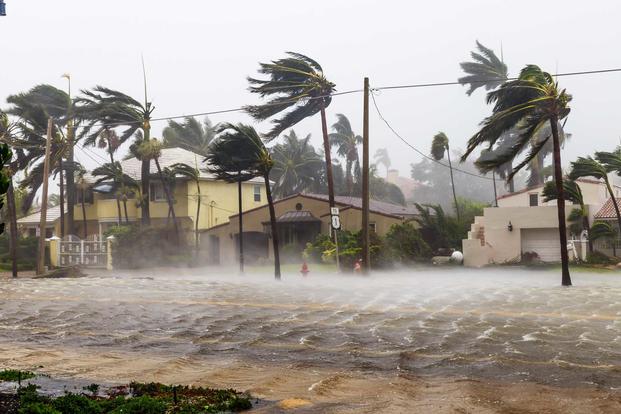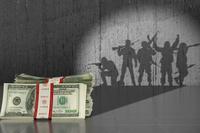With content from USAA
With the recent earthquake and tsunami in Japan, natural disasters are in the headlines -- are you fully prepared in case one strikes you? Here are some tips to make sure your finances are in order before disaster strikes.
1. Review your insurance policies and coverage.
A major storm can have a major impact on all aspects of your life. Check your homeowners, auto, life, valuable property and flood insurance -- especially important during a hurricane -- to ensure you have adequate and up-to-date coverage. Here's some things to look for as you evaluate different types of insurance coverage:
- Know what's covered. Are there any out-of-pocket costs you might have to pay if you're injured in a disaster? Medical bills are often a major cause of bankruptcy, and if you don't have proper coverage, you might find yourself on the short end of your next bank statement. If you need additional health or disability coverage, check out individual plans.
- Work with a financial planner. What's the best fit for you, given your health and life insurance needs, as well as the needs of your family? A planner can help pinpoint which plans suit you.
- Homeowner and rental insurance limits. If you live in an area prone to floods or water damage, does your insurance cover it? It may be worth it spending a little extra for extended coverage that will protect you.
2. Make an inventory of your personal possessions.
Most people couldn't list all the items in their living room without looking. Make and save an inventory now, so you'll know exactly what's been lost later -- this will help you during the insurance claim process. A video or digital record of your possessions is also extremely useful.
Store your written and visual inventories in a safe place away from your home, such as a safe-deposit box. Keep a copy of the written inventory at home for reference. Update both copies at least once a year, or whenever you make a major purchase.
You can also download free home inventory software for your mobile device or computer that is easy to use, and very useful in an emergency.
3. Pay your bills.
Your bills may be the last thing on your mind after a storm hits, so set up an automatic payment plan to ensure your payments are always made on time.
4. Check your available credit.
Make sure you have a credit card with at least $1,000 available. Get receipts for cash purchases before and after a storm.
5. Create an emergency fund.
There are two components to this option -- first, have a set sum deposited into a savings account each month, until you have enough to pay for three to six months of critical expenses. Local financial institutions can be closed for a few days after a natural disaster, and ATMs could be out of order even longer, so always have enough cash tucked away -- at least $200 -- before a pending disaster to pay for emergency expenses. Also, remember to keep food and lodging receipts, as they may be reimbursed through your policy coverage.
6. Secure your home.
Fortify your roof, windows, garage and entry doors. The Institute for Business & Home Safety offers a comprehensive preparation guide as do most state and local governments and the federal government's ready.gov website.
7. Have your policy information ready.
You can store your information privately online, like on Google drive, Apple iCloud or Microsoft OneDrive where you can access it from anywhere, including your mobile phone or a public computer like in a school or library. You can also email the information to yourself and have it readily available that way as well.
Write down your policy numbers, and all phone and email contact information, for all your insurance policies or also scan them using your printer or via a phone app or take pictures of them and keep copies online.
Make sure family members have access to the information as well.
You can store your information privately online, like on Google drive, Apple iCloud or Microsoft OneDrive where you can access it from anywhere, including your mobile phone or a public computer like in a school or library. You can also email the information to yourself and have it readily available that way as well.
8. Safeguard your records.
Put your important insurance and financial documents into a safe-deposit box. Some important items you should store:
- Insurance policy documents
- Deeds and titles for your home, car, and other real property
- Previous year's income tax returns
- Originals of wills and powers of attorney, if not with your attorney or local registrar
- Backups of computerized financial records
- Checking and savings account, loan, credit card, investment account information
- Originals of deeds and titles to your home, car and other real property
- Appraisals of expensive jewelry and heirlooms
- Certificates for stocks, bonds, and other investments
- Trust agreements
- Copies of wills and powers of attorney, if not with your attorney or local registrar
- Home improvement records
- Household inventory documentation
9. Did we mention insurance?
Yeah, we're being a little repetitive, but for most losses due to a storm, nuclear meltdown, or natural disaster, insurance is going to handle the lion's share of your recovery bills. Homeowners insurance is a must for most things that can go wrong with your house, while flood insurance covers rains and hurricanes that homeowners doesn't.
While flood insurance is usually - though not always - handled through the federal government (FEMA). (Hint while shopping: ask your homeowner policy for a quote for private flood or a referral for federal flood coverage - it'll save time and you may save on rates if you bundle.)
Don't Wait Until Theft or Disaster Strikes
Ready to protect your home and precious valuables? Get free quotes.










